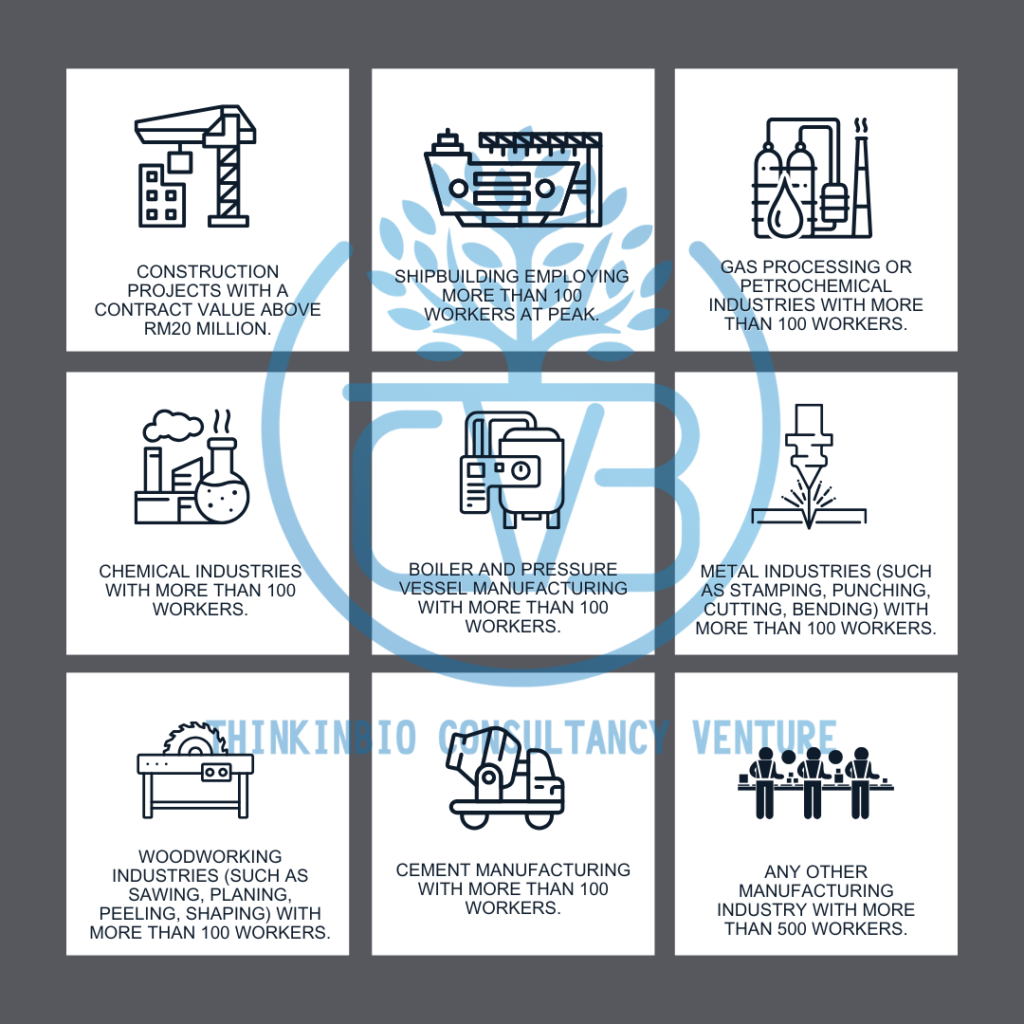Safety and Health Coordinator in SME Malaysia
The Occupational Safety and Health (Amendment) Act 2022 came into effect on 1 June 2024, introducing new responsibilities for employers in Malaysia. The most important change is that any company with five or more employees must appoint an Occupational Safety and Health (OSH) Coordinator, unless the company already employs a certified Safety and Health Officer (SHO).
Previously, only large companies—generally with more than 500 workers—or those in hazardous and high-risk industries were required to employ a Safety and Health Officer. SMEs and lower-risk businesses were exempt in the past.
Now, even smaller companies must comply with this Occupational Safety and Health (OSH) Coordinator requirement.
Who Can Be a Safety and Health Coordinator?
A Safety and Health Coordinator is not a casual appointment. The role must be held by someone who:
✔ Attends and completes training conducted by a DOSH-approved training provider,
✔ Passes the official examination, and
✔ Is registered under DOSH with a valid certificate.
Internal training or “on-the-job” experience is not enough (but it serves as a pre-requisite to attend training). Only individuals who are formally trained and certified by DOSH-approved providers can serve as OSH Coordinators.
Roles and Responsibilities
Once certified, the Safety and Health Coordinator is responsible for:
Reporting the workplace’s OSH status to DOSH,
Administering and maintaining safety documents,
Promoting a safety culture among employees, and
Taking corrective or preventive actions when issues arise.
In many companies, the Safety and Health Coordinator also serves as a member of the Safety and Health Committee, ensuring that workplace safety matters are discussed and acted upon.
Differences Between OSH Coordinator and Safety and Health Officer (SHO)
Although both roles focus on workplace safety, there are key differences:
-
Requirement: Companies with a Safety and Health Officer do not need an Safety and Health Coordinator.
-
Scope: The Safety and Health Officer carries wider and heavier responsibilities, including enforcement and advanced monitoring of compliance. Safety and Health Officer is a green book holder who is a certified and registered competent person in Malaysia, authorized to report and handle safety and health matters at workplaces.
-
Cost: Hiring or training an Safety and Health Officer is significantly more costly, while appointing an Safety and Health Coordinator offers SMEs a more practical compliance pathway.
OSH Coordinator OR Safety and Health Officer (SHO)?
You may be unsure whether your company needs an OSH Coordinator or a Safety and Health Officer (SHO). According to the Occupational Safety and Health (Safety and Health Officer) Order 1997, only the following industries are required to appoint an Safety and Health Officer instead of an OSH Coordinator:
Flexibility for SMEs
The law does not require an Safety and Health Coordinator to be a full-time employee of the company. Many SMEs are engaging part-time Safety and Health Coordinators who can periodically inspect the workplace, advise on safety matters, and help the business remain compliant. This flexibility provides smaller companies with a cost-effective way to meet legal requirements.
Beyond Compliance – Corporate Responsibility
Complying with Malaysia’s OSH law is not a choice—it is a legal obligation. But responsible companies go further, recognising that safety and health are not just about avoiding penalties. They are about protecting people, strengthening trust, and sustaining business growth.
Today’s stakeholders—including clients, buyers, and investors—hold companies to much higher expectations when it comes to workplace health and safety. In supplier audits, social compliance reviews, and certification assessments, OSH performance is often placed under the spotlight. A single weakness can raise red flags, affect audit outcomes, and even put supply contracts at risk.
Beyond legal compliance, appointing a competent OSH Coordinator demonstrates your commitment to international standards such as ISO 45001, SMETA, and WRAP. More importantly, it signals that your company respects the basic human right to a safe and healthy workplace. In a world where brand reputation can be damaged overnight, neglecting safety is not only irresponsible—it is costly.
By taking safety and health seriously, you protect your workers, reassure your clients, and strengthen your brand’s credibility in the marketplace.
How Thinkinbio Can Help
At ThinkinBio, we believe that occupational safety and health is more than just compliance—it is a foundation for sustainable and ethical business. We help companies understand local legal requirements, as well as how OSH practices fit into international certifications and buyer expectations. With the right guidance, your company can protect employees, comply with the law, and strengthen your brand image in the eyes of clients and stakeholders.
Want to learn how we can support your goals?
Explore more about our services here.
Let us walk the journey of responsible business with you.
Share the article on social media:

